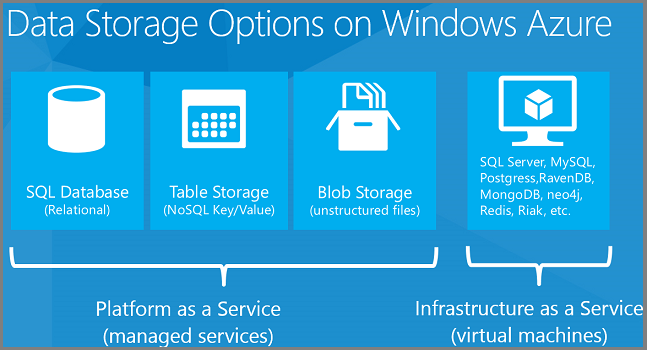Microsoft Azure Storage Options
- Azure
- Azure Active Directory
- Azure Blobs
- Azure Cloud
- Azure Cloud Computing
- Azure Cloud Series
- Azure Compute
- Azure Cosmos DB
- Azure Files
- Azure Networking
- Azure Platform
- Azure Queue Service
- Azure Storage
- Azure Table Storage
- IT Consultant
- IT Consulting
- Microsoft Azure
- Microsoft Certified Partner
- Microsoft Cloud
Microsoft’s Azure cloud computing is more than just a way to avoid having servers on premises. The system’s storage solutions can change the way you conduct business, and where as well. Azure Storage is Microsoft’s cloud storage solution for modern data storage scenarios. Azure Storage offers a massively scalable object store for data objects, a file system service for the cloud, a messaging store for reliable messaging, and a NoSQL store.

Azure Storage is durable and highly available. Azure’s redundancy ensures that your data is safe in the vent of transient hardware failures. You can also opt to replicate data across data centers or geographical regions for additional protection from local catastrophe or natural disaster. Also, all data written to Azure Storage is encrypted by the service.
Azure Storage is designed to massively scalable to meet the data storage and performance needs of today’s applications. Microsoft Azure also handles maintenance and any critical problems for you. Data in Azure Storage is accessible from anywhere in the world over HTTP or HTTPS. Microsoft provides SDKs for Azure Storage in a variety of languages, including .NET, Java, Node.js, Python, PHP, Ruby and Go.
Azure Storage includes these data services:
- Azure Blobs are ideal for serving images or documents directly to a browser, storing files for distributed access, streaming video and audio, storing data for backup and restore, disaster recovery and archiving, and storing data for analysis by an on-premises or Azure-hosted service.
- Azure Files enables you to set up highly available network file shares that can be accessed by using the standard Server Message Block (SMB) protocol, meaning multiple VMs can share the same files with read and write access.
- Azure Queue service is used to store and retrieve messages. Queue messages can be up to 64 KB in size, and a queue can contain millions of messages. Queues generally are used to store lists of messages to be processed asynchronously.
- Azure Table storage is now part of Azure Cosmos DB. In addition to the existing Azure Table storage service. There is a new Azure Cosmos DB Table API offering that provides throughput-optimized tables, global distribution and automatic secondary indexes.
A bevy of storage options is just one of the many benefits Microsoft’s Azure cloud solution can bring to your organization. 2W Tech has IT Consultants on staff that are Microsoft Certified experts who can guide you through your Azure cloud deployment and help you choose the storage option that works best for you. Contact us today to learn more about Microsoft Azure.
Read More:
Difference Between Artificial Intelligence and Machine Learning
Epicor ERP 10.2.2 Makes Its Debut
Microsoft Azure Security, Privacy and Compliance
Interested in reading this article? Click the button below to download this asset.
Download “Microsoft Azure Security, Privacy and Compliance” Now
Microsoft Azure Security, Privacy and Compliance
Please complete the form to download the file.